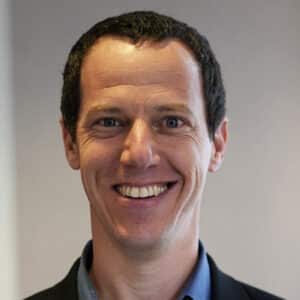-
14 August 2024
For the past three years, I have had the honor and privilege to serve as the Senior Shaliach (Israeli emissary) of The Jewish Federation of Greater Washington.
During those years, I was a part of a team committed to the Jewish community, to Israel, and ultimately, to the betterment of the world.
The objective of my role was to build and strengthen bridges between the local Jewish community and Israel – a part of a world view that sees connection to Israel as an integral part of one’s Jewish identity. In other words, the job was to promote Zionist education.
I want to offer my two cents about those two big words: Zionism and education.
Let’s begin with Zionism. I believe that Zionism has three layers:
First, the belief that Israel has the right to exist as a Jewish state.
If you don’t believe in that for sure you cannot be called a Zionist. But I argue that this political stance by itself, that Israel has the right to exist, is not enough.
The second layer is an emotional connection to the state of Israel. To be a Zionist is to feel that Israel is part of who you are.
And although the emotional part is an important one, I think there is a third crucial piece to the puzzle: taking action.
It’s not enough to believe in Israel’s right to exist and feel connected to it. Zionism demands that we actively participate in protecting, building, and shaping the future of Israel.
So, I see Zionism as a worldview with a call to action.
Now, let’s look at education. The core of education, the way I see it, is instilling a set of values in other in such a way that those values will guide their actions.
What do I mean? Let’s think of the following example: When I educate my kids, I teach them about friendship, empathy, perseverance, and more. Eventually, I expect my kids to behave according to those values. If my kids are aware of the concept of kindness, but don’t practice kindness, then my education wasn’t successful.
And in this aspect – of action – Zionism and education come together in an interesting way. Both of those concepts are, at their core, about internalizing a set of beliefs in a way that directs our actions. So, let me give you a glimpse at the actions I took to achieve our goals.
- Empowering our Shlichim (Israeli emissaries). At Federation, the Shlichim Program is one of our core strategies of connecting the Greater Washington Jewish community to Israel. Federation supports a cohort of Israelis who immerse themselves into communities, form relationships, and run educational programs.
When I started my role in August 2021, the pandemic was very present and the task of integrating into a community through Zoom was especially challenging. As Covid began to recede and we got used to a “new normal,” we invested significantly in regrouping our Shlichim, running trainings, personal mentoring, and relationship building both with Federation and with other organizations in our community. The investments in strengthening the the role of the shlichim enabled us to do more for the community.
- Running programs. Our Shlichim were busy! Over and above their weekly schedule of Hebrew lessons, teach in religious schools, and more, they run special programs for numerous groups and organizations. Ove the last three years, the Shlichim lead and participated in 850 educational programs with roughly 36,000 participants!
We didn’t only aim to expand our reach, but also to repeat interactions with the same people in order to form deeper relationships. In those interactions, we didn’t shy away from complexities and challenges and invited people to connect to Israel in a profound manner through numerous channels such as culture, history, politics, sport, science and more.
- Personal relationships. For many in the Greater Washington community, the Shlichim were the face and soul of Israel, and part of our strategy was to form personal relationships with community members. Each one of our Shlichim formed dozens of meaningful connections, which accumulated over the years to thousands of relationships. We know that those connections are meaningful and long lasting, and that many of them will continue well after the Shlichim return to Israel.
- October 7th. We all feel the pain of October 7th, but for the Shlichim, who are young Israelis, it hit them as close as it could get. Horrible stories of friends that were murdered at the NOVA festival, hostages they knew personally, family members and friends that were called for the reserves, some that were injured and more.
The first few weeks were filled with trauma, sorrow, and grief. It was unclear how we would move forward and what our role was being so far away from home. But soon after, with immense personal strength, the Shlichim transformed the pain into action. Sharing their stories, addressing rallies, fundraising, hugging, and crying, they stepped up more than ever. Their actions were inspiring and brave and epitomized the true meaning of being a Shaliach.
And that brings me to the last point I want to address: hope. I started my reflection by describing three components to Zionism, but I actually believe there is a fourth one, an ingredient that keeps it all together – hope. Throughout history, Zionist leaders were people of vision and shared a strong belief in our power to make a change. Even in our darkest hours, Zionists imagined a future of peace, prosperity, and kindness. Zionism is the belief that we can, and we must, strive toward a better future.
Let me finish with Israel’s national anthem: Hatikvah (Hope):
עוד לא אבדה תקוותנו,
התקווה בת שנות אלפיים,
להיות עם חופשי בארצנו,
ארץ ציון ירושלים.
Our hope is not yet lost,
The hope of two thousand years,
To be a free nation in our own land,
The land of Zion and Jerusalem
With gratitude,
Hagai

